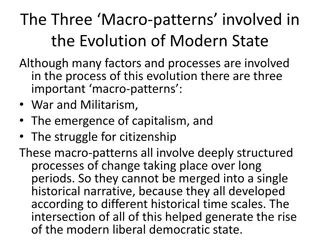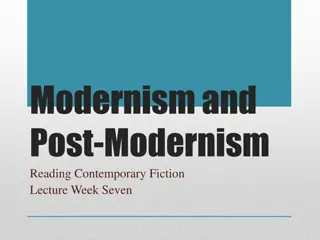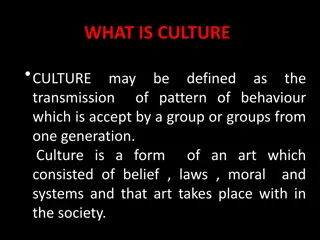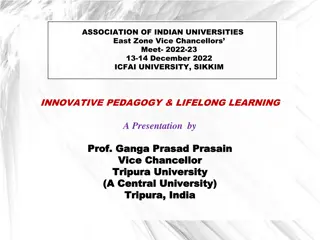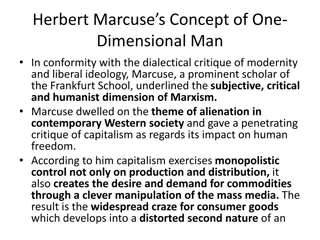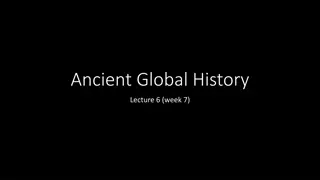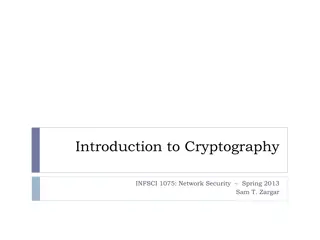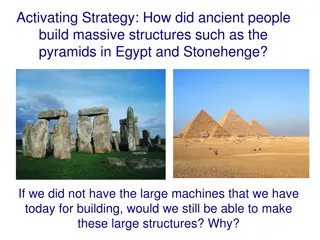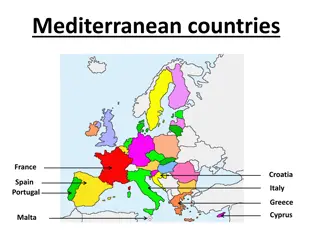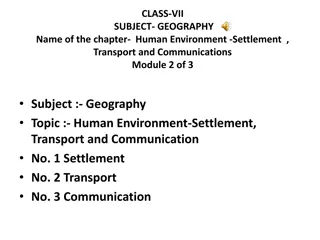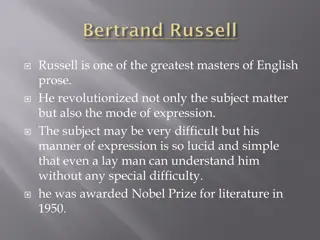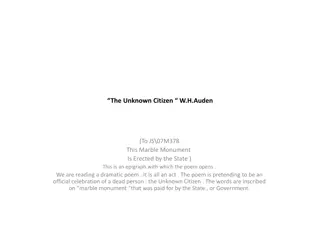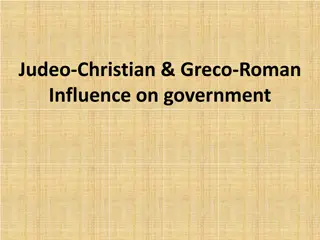Evolution of Cosmopolitan Citizenship: From Ancient Greece to Modern Critiques
The concept of cosmopolitan citizenship has evolved from ancient Greece to modern times, with thinkers like Kant and global social movements reshaping its meaning. While some advocate for a universal sense of responsibility, critics question the feasibility and potential dangers of such projects. Michael Walzer, for instance, challenges the very idea of being a citizen of the world, emphasizing the importance of national identity and shared histories.
Download Presentation

Please find below an Image/Link to download the presentation.
The content on the website is provided AS IS for your information and personal use only. It may not be sold, licensed, or shared on other websites without obtaining consent from the author. Download presentation by click this link. If you encounter any issues during the download, it is possible that the publisher has removed the file from their server.
E N D
Presentation Transcript
Evolution of the Concept First appeared in ancient Greece in the fourth century BC when the polis and the civic virtues associated with it were in obvious decline. Diogenes, the cynic philosopher, called himself a citizen of the world because he believed the polis no longer had first claim upon the individual s political allegiances. So the idea was to criticize the polis rather than to develop some vision of a universal community of humankind. Enlightenment thinkers such as Kant used the concept of world citizenship more positively to promote a stronger sense of moral obligation between the members of separate sovereign states.
Post-war Period and Global Social Movements Since the Second World War, members of global social movements have resurrected the notion of cosmopolitan citizenship to defend a stronger sense of collective and individual responsibility for the world as a whole and to support the development of effective global institutions for tackling global poverty and inequality, environmental degradation and the violation of human rights. Their quest is for a new language of politics challenging individual s central political obligations to the nation state. Cosmopolitan citizenship is regarded as a key theme in the continuing search for universal rights and obligations binding all peoples together in a just world order.
Cosmopolitan Projects Challenged Critics doubt that global problems can be solved by establishing cosmopolitan citizenship with cosmopolitan rights and duties. They have argued that cosmopolitan projects are likely to be the vehicles for particular political interests which wrap themselves in the language of universality. Many point to the danger that new forms of cultural imperialism will result from efforts to lay down rights and duties which apply to human beings everywhere.
Cosmopolitan Projects Challenged Others argue that efforts to break the nexus between the citizen and the state are destined to fail because there is no sense of international community which can support the sophisticated forms of citizenship which exist within democratic societies. It is not only merely rhetorical but dangerous since it detracts from the more urgent business of preserving the nation-state.
Michael Walzers Criticism Walzer challenges the very concept as he says, I am not a citizen of the world I am not even aware that there is a world such that one could be a citizen of it . Three important points of Walzer comment should be taken into consideration here: i. First, Walzer argues that national citizens have a clear sense of belonging to a bounded political community; ii. Second, they enjoy common sentiments born from their shared historical experience; and iii. Third, they regard certain dates which define their unique history as particularly worthy of celebration.
Walzers Criticism (Contd.) Despite the idea of a global village in an inter- connected globalizing world, it has not altered the fact that there are no equivalent historical points of reference which are important for the entire human race. It is therefore essential to distinguish between the domain in which citizenship has real meaning and significance- the democratic nation-state- and the domain in which it has no obvious meaning at all-the world at large.
Walzers Criticism (Contd.) A second point is that the common culture which binds national citizens together enables them to agree on the precise rights and duties which are constitutive of their membership of a distinctive political community. Because there is no global political culture it is hardly surprising that human beings have not reached an agreement about the rights and duties that world citizens can expect from each other.
Lack of Global Political Culture and Cosmopolitan Political Institutions Thus, it is unremarkable that the world lacks cosmopolitan political institutions which are empowered to uphold the rights and obligations of cosmopolitan citizens. The central implication of this argument is that although the idea of cosmopolitan citizenship may well embody noble moral aspirations, and although it may have the welcome effect of persuading individuals to take their global responsibilities more seriously, it distorts the true meaning of citizenship. To be a citizen in the true sense of the word is to possess rights and duties which are defined by law and protected by the institutions of the state.
Right of Participation and Representation in Politics A third point, the most important of all, is that citizenship refers to the right of participation and representation in politics. To be a citizen of a state is to be a co-legislator, if not directly through the forms of active political participation then indirectly through elected representatives who decide for the whole political community within a democratic public sphere. Walzer stresses that there is no equivalent form of joint rule within world society; nor is there a global public sphere which brings cosmopolitan citizens together to legislate for humanity as a whole. The notion of participation in politics which is at the heart of the civic ideal is lacking here very prominently.
Essentially Communitarian Argument Walzer s critique of world citizenship is part of a broader, essentially communitarian argument which claims that each political community must have the right to decide who can become a member and who can be turned away. The right of social closure is essential if each political community is to preserve its distinctive cultural identity. But this argument for bounded political communities does not embrace moral parochialism which breeds disinterest in, if not outright hostility to, outsiders. Walzer position is for a passionate defence of moral obligations to alien outsiders, which is clear in his remarks on refugees who have lost the security and protection of belonging to a viable political community.
Essentially Communitarian Argument (Contd.) Thus, Walzer s case for bounded political communities is linked with a powerful defence of duties to other members of the human race. But he rejects any suggestion that the idea of cosmopolitan citizenship is essential to foster compassion for desperate strangers. For example, all that is required in the case of the United States is that national citizens should regard themselves as cosmopolitan Americans - as national citizens with demanding moral obligations to people elsewhere.
Development of Civic Virtues within Existing National Communities Miller (1999) argues that invitations to conceive of the self as a citizen of the world are a distraction from the more pressing task of developing civic virtues within existing national communities. He argues that it is important to remember that political associations whose members enjoy the status of equal citizens are an unusual accomplishment in the history of government. The social preconditions of citizenship depend upon political initiatives to encourage individuals to demonstrate loyalty to their community and to make personal sacrifices in the interests of society as a whole.
Concluding Observations The democratic civic virtues which are intrinsic to citizenship have had to be nurtured within unusual bounded political communities such as the nation-state because they are unlikely to develop elsewhere. Nor is the survival of these virtues guaranteed. It is therefore reasonable to suppose that efforts to promote vague cosmopolitan ideals in a world which lacks a basic moral consensus will weaken the only form of political association which can sustain the civic ideal.
Concluding Observations (Cont.) The upshot of these arguments is that cosmopolitan citizenship would be a meaningful concept if humanity was governed by a world state with rights and duties of world citizens specified in international law and with people having similar cultural beliefs and historical memories.







